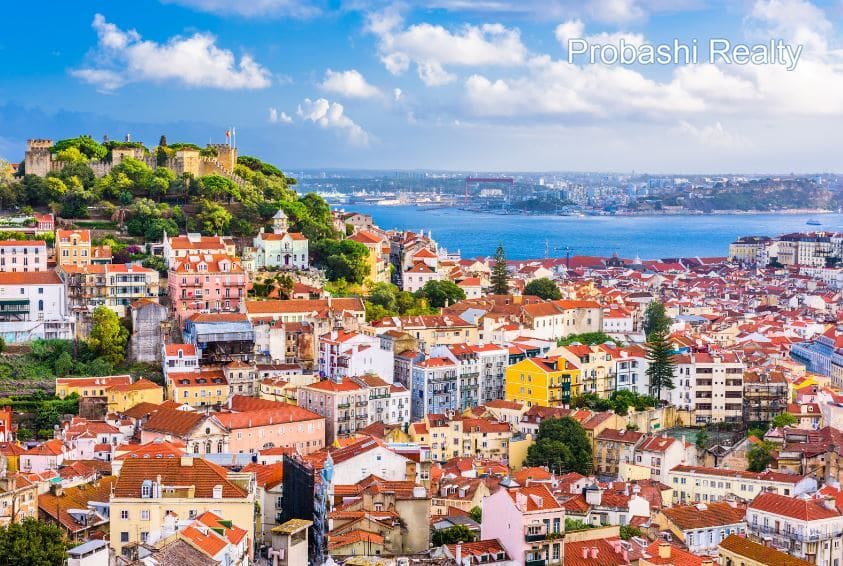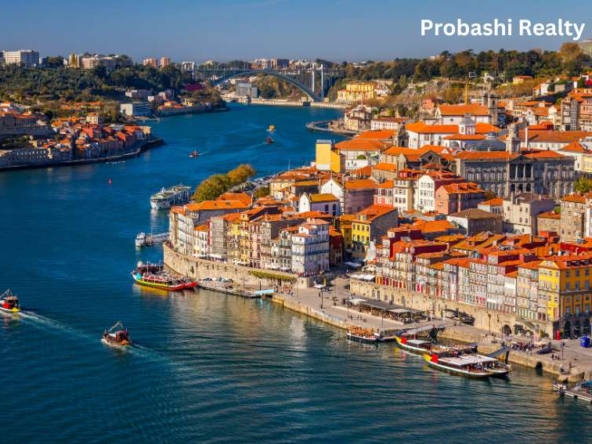Portugal Real Estate market overview
The Portuguese real estate market had several distinctive features and trends:
-
Recovery and Growth: Portugal’s real estate market had been in a recovery phase following the global financial crisis of 2008-2009. After a period of decline, property prices began to rebound, particularly in urban areas and popular tourist destinations.
-
Foreign Investment: Portugal has attracted significant interest from foreign investors, particularly from European countries, China, and Brazil. Foreign investment has been driven by factors such as the Golden Visa program, which offers residency permits to investors, as well as Portugal’s attractive lifestyle, favorable climate, and relatively low property prices compared to other European countries.
-
Tourism and Short-term Rentals: Portugal’s booming tourism industry has had a notable impact on the real estate market, particularly in cities like Lisbon, Porto, and the Algarve region. The rise of platforms like Airbnb has led to a proliferation of short-term rental properties, with some concerns about its impact on local housing markets and long-term rental availability.
-
Golden Visa Program: Portugal’s Golden Visa program, which grants residency permits to non-EU investors who invest a certain amount in real estate or other qualifying investments, has been a significant driver of foreign investment in the property market. This program has attracted high-net-worth individuals seeking residency in the EU and has stimulated demand for luxury properties in particular.
-
Urban Regeneration: Major cities like Lisbon and Porto have undergone significant urban regeneration projects in recent years, revitalizing historic neighborhoods and attracting investment in residential and commercial properties. These efforts have contributed to the attractiveness of urban living and have led to increased property values in certain areas.
-
Affordability: While Portugal is generally considered more affordable than many other European countries, there are regional variations in property prices. While prices in urban centers and tourist hotspots may be higher, there are still opportunities for more affordable property purchases in rural areas and smaller towns.
-
Government Initiatives: The Portuguese government has implemented various initiatives aimed at supporting the real estate market and promoting homeownership. These include tax incentives for property investors, urban renewal programs, and efforts to streamline the permitting process for construction projects.
-
Sustainability and Energy Efficiency: Like many European countries, Portugal places an increasing emphasis on sustainability and energy efficiency in the real estate sector. There are incentives for property owners to invest in renewable energy sources, energy-efficient appliances, and green building practices.
Overall, Portugal’s real estate market offers opportunities for investors, both domestic and foreign, driven by factors such as tourism, urban regeneration, and government incentives. While there are challenges such as affordability concerns and potential overreliance on tourism, Portugal remains an attractive destination for real estate investment and lifestyle purposes.
Portugal Real Estate Tips
Navigating the real estate market in Portugal requires careful consideration of various factors. Here are some tips to help you along the way:
-
Research the Market: Portugal’s real estate market varies significantly depending on the region. Research recent trends, property prices, and market conditions in the specific area you’re interested in. Consider factors such as supply and demand, demographics, and economic growth.
-
Understand Local Regulations: Familiarize yourself with the legal and regulatory framework governing real estate transactions in Portugal. Understand the process of buying property, including taxes, fees, and legal requirements. Consider consulting with legal professionals who specialize in Portuguese real estate law to ensure compliance.
-
Location, Location, Location: Location is key when buying property in Portugal. Consider factors such as proximity to amenities, public transportation, schools, beaches, and tourist attractions. Coastal areas like the Algarve or cities like Lisbon and Porto may offer different investment opportunities compared to rural areas.
-
Budget Wisely: Determine your budget for purchasing property in Portugal, taking into account your savings, income, expenses, and borrowing capacity. Factor in additional costs such as taxes, legal fees, notary fees, and property maintenance expenses.
-
Financing Options: Explore financing options available in Portugal, such as mortgages offered by banks or financial institutions. Understand the requirements, terms, and interest rates associated with each option. Consider seeking pre-approval for a mortgage to strengthen your purchasing power.
-
Engage a Real Estate Agent: Consider working with a reputable real estate agent who has local market knowledge and experience. An agent can help you find suitable properties, arrange viewings, negotiate with sellers, and navigate the buying process. Look for agents who are licensed by regulatory bodies such as the Association of Portuguese Realtors (APEMIP).
-
Attend Open Houses and Viewings: Take advantage of open houses and property viewings to get a feel for the market and available properties. Pay attention to the condition of the property, its layout, features, and potential renovation needs. Ask questions and gather information to make informed decisions.
-
Due Diligence: Before making an offer on a property, conduct thorough due diligence. This may include obtaining building inspections, land registry searches, zoning information, and reviewing property documents. Consider hiring professionals such as surveyors, architects, or structural engineers to assess the property’s condition.
-
Negotiate Terms: When making an offer, be prepared to negotiate terms and conditions with the seller. Consider factors such as the purchase price, deposit amount, financing contingencies, and timeline for closing the deal. Your real estate agent can provide guidance and support throughout the negotiation process.
-
Legal Assistance: Seek legal advice from a qualified Portuguese real estate lawyer before signing any contracts or agreements. A lawyer can review the purchase contract, explain legal terms, and ensure that your interests are protected throughout the transaction.
-
Consider Long-Term Investment: Think about the long-term potential of the property as an investment. Research market trends, rental yields, and potential for capital appreciation in the area. Consider factors such as tourism demand, infrastructure development, and lifestyle preferences.
-
Stay Informed: Stay updated on developments in the Portuguese real estate market, including changes in regulations, taxation, and market trends. Follow industry news, attend seminars or workshops, and consult with experts to make informed decisions.
By following these tips and conducting thorough research, you can navigate the Portuguese real estate market effectively and make sound investment decisions.



